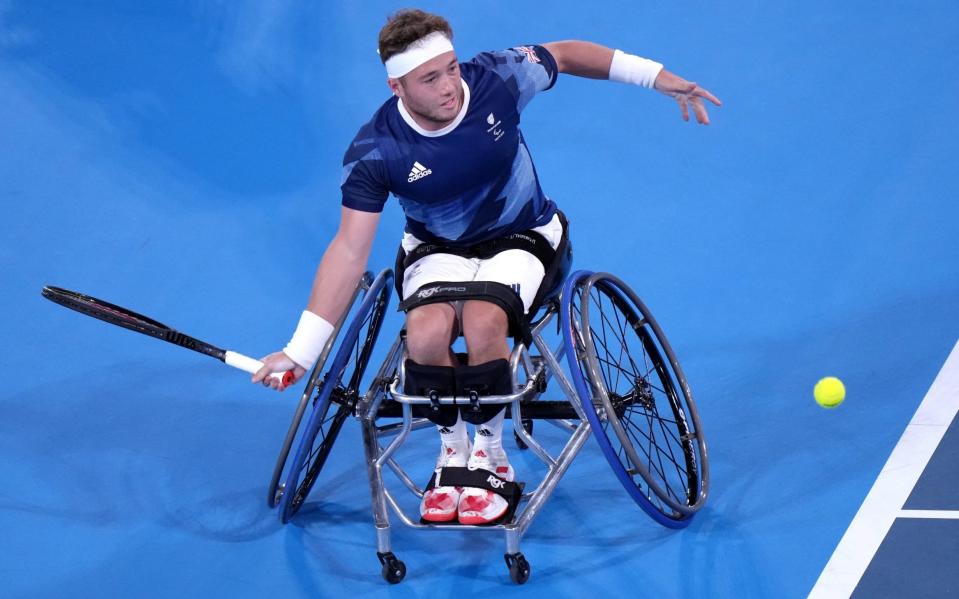Alfie Hewett in 'floods of tears' after ITF performs U-turn over classification system

Britain’s leading wheelchair tennis player Alfie Hewett said on Monday that he broke down in “floods of tears” after finally being told that he can continue in the sport after a nightmarish two-and-a-half years.
Hewett has suffered enormous stress since being warned in late 2019 that he would soon be ruled ineligible. Wheelchair tennis was planning to bring in a new classification system, which did not consider him disabled enough to compete. His career was poised to end soon after the Tokyo Paralympic cycle.
But after appeals from at least four excluded players – who also include Hewett’s compatriot Dermot Bailey – the authorities have now come to their senses. If you cannot realistically compete in regular tennis competitions on your feet, because of a physical impediment, you will henceforth be entitled to enter wheelchair events.
Hewett received the go-ahead on November 13 in Amsterdam, where he had travelled to undergo further classification tests on his hip condition. Perthes Disease occurs when the blood supply fails to the top of the femur, causing issues in the hip socket.
“Just a lot of emotion,” was how Hewett described his reaction. “I had barely got a wink of sleep the night before. So I was pretty drained and then there were floods of tears. I let everyone know back home then I pretty much just hopped on a flight. I did have a glass of bubbly at the airport.”
At only 23, Hewett has already won five grand slam singles titles – three at Roland Garros and the other two at the US Open – while he and Scotland’s Gordon Reid have evolved into such a remarkable doubles team that they completed the calendar grand slam this season. They also picked up a silver medal at the Tokyo Paralympic Games.
“Gordon was actually one of the first people I called,” Hewett said. “Obviously Australia is coming up and he needed to be aware of whether to search for a new partner. So, yeah, I gave him the good news. And obviously he's gutted ,” Hewett added with a grin, “because he has to stick with me now.”
Hewett could have been forgiven for expressing resentment towards the International Tennis Federation – the body that runs wheelchair tennis – after the ordeal he has been through. Instead, he remained philosophical, and even suggested that the feeling of being on borrowed time had sharpened up his game.
“At first it was really challenging to get my head around,” said Hewitt, in reference to those first agonising months in 2019. “I work with a psychologist anyway. So she became even bigger in that period. Once I got over the initial reaction, I promised myself that – if it was to be my last year – I wanted to go out with the best performance possible.
“I've had some unbelievable experiences in the last two years,” added Hewett, who has won three of his five major singles titles and eight of his 13 doubles slams with the threat of exclusion hanging over him. “I almost feel like because of the situation, it gave me an extra dimension to my training, and an extra drive to push myself.”

 Yahoo Sport
Yahoo Sport 





































